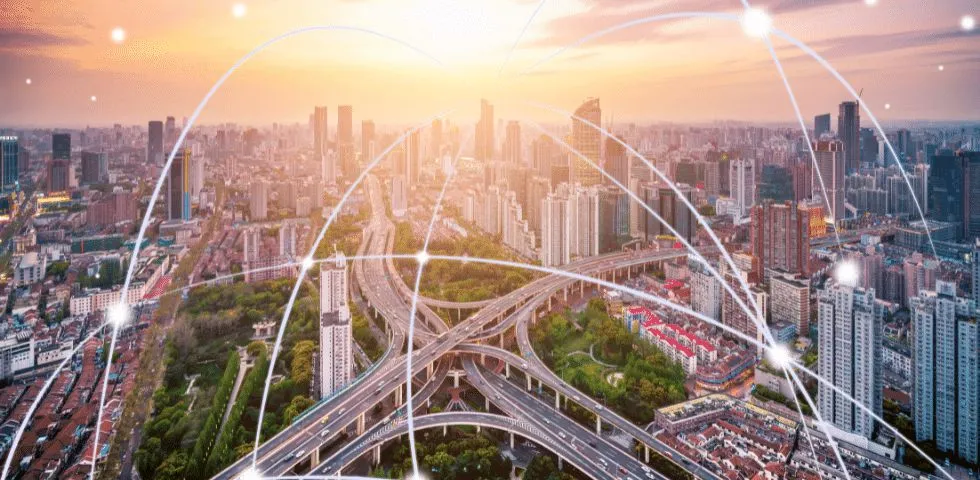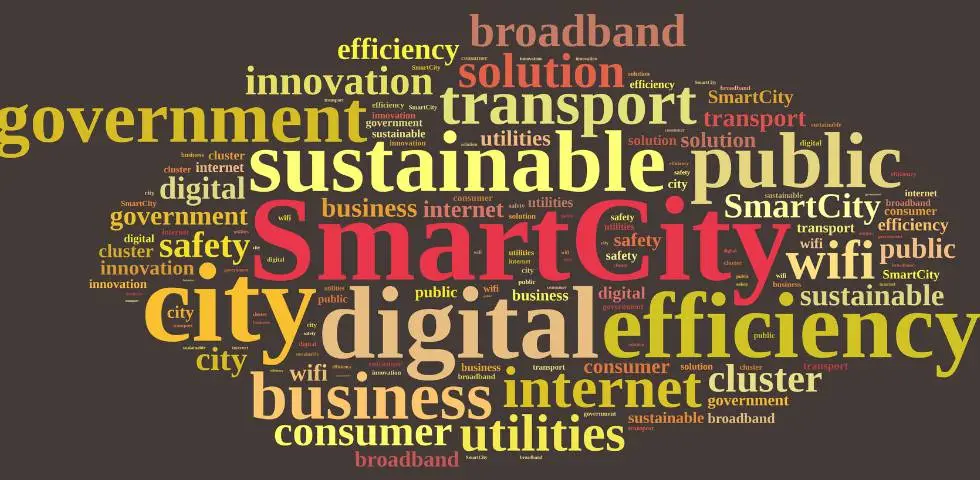How India’s smart cities are shaping public utilities
India has the third largest urban population globally, and this is only going to get bigger. By 2030, almost half of India will be living in cities. This rapid urbanisation and the need for sustainable infrastructure have led to a focus on smart cities. These initiatives have been backed by the Smart Cities Mission, initiated by the Government of India, which aims to develop 100 smart cities across India. Smart cities are not just about digital infrastructure but also have a focus on green spaces, sustainable housing, accessible public transportation, and other social amenities. The following is an overview of how smart cities are shaping the future of public utilities in India:

Smart Governance
In order to develop a smart city, it is important that the city has a strong and efficient governance model.
This will make sure that all the plans for amenities, infrastructure, and other developments are carried out well.
This is important because public utilities such as water and energy can only be managed sustainably if there is a strong governance system in place.
Without strong governance, there is a greater chance of corruption, mismanagement, and other inefficiencies that can negatively impact public utilities.
The Smart Cities Mission puts a lot of emphasis on good government in order to change people’s lives.
This is done by introducing new models of governance, such as the “letting go” model, which allows cities to be more self-regulated while still having access to funds and technical assistance from the Centre.
- Must Read : Dholera smart city project
Sustainable Transportation Options.
Public transportation is a key component of any smart city.
Air pollution is one of the biggest concerns in most Indian cities, and this is largely because of the high number of vehicles being used on a daily basis.
Indian cities are investing in green ways to get around like electric cars, public transportation, and biking to cut down on air pollution.
This is incredibly important because an estimated 3 million Indians die each year due to pollution.
And, this number is expected to increase to 5 million by 2030.
Robust Infrastructure
One of the biggest challenges in most Indian cities is poor infrastructure.
This makes it hard for people to get to basic things like clean water, cheap transportation, and reliable power.
Without proper infrastructure, it is more difficult to manage public utilities within cities, and this can lead to a number of other issues.
Examples of how poor infrastructure can affect public utilities include the difficulty of delivering water to citizens when there are issues with pipes, and the inability to repair power lines when they break.
To build a strong infrastructure for smart cities, long-term investments in infrastructure development and management are required.
Modern technology can make it easier for cities to track and keep an eye on their infrastructure, which is one of its benefits.
This allows for quicker reaction times when there are issues with infrastructure.
- Also Read : List of smart cities in India 2022
Smart Water Management
Water is vital to the health of any city.
Water is used for drinking, sanitation, and even powering the transportation systems.
While Indian cities face challenges with water management, the Smart Cities Mission is part of a strategy to improve the situation.
One of the main challenges facing water management in Indian cities is related to how water is sourced.
Most cities source their water from nearby rivers and reservoirs.
This results in seasonal fluctuations in water availability.
This can be difficult to manage and results in periods with less water being used, which can negatively impact the health of nearby ecosystems.
- Also Read: Top smartest city in the world
Smart Environmental Protection and Waste Management
In order to protect the ecosystem of Indian cities, there needs to be sustainable waste management and smart environments.
This means managing the millions of tonnes of waste that are generated by Indian cities each year.
While waste management in Indian cities is improving, it still needs to be done in a more sustainable way.
Smart environments that incorporate a variety of factors are required to provide long-term waste management solutions.
This includes introducing new technologies, better management, and sustainable policies.
The Smart Cities Mission includes expanding the use of waste-to-energy plants, which can help generate energy from waste.
This reduces the amount of waste ending up in landfills and helps generate energy.
Smart Energy Usage
Energy is an essential component of any city.
It is used to power the transport systems, the electricity grids, and even help with waste management.
While Indian cities face challenges in providing adequate energy to citizens, the Smart Cities Mission is part of a strategy to improve the situation.
How energy is made is one of the biggest problems in Indian cities when it comes to managing energy.
Most cities source their energy from nearby power plants.
This results in energy being produced during peak times.
This means that there is an increase in the amount of energy being produced during certain times of the day. This results in energy being produced but not being used.
Housing and Living Conditions that are Smart
Making sure people can live in places that are easy to get to and will last is an important part of any smart city.
This includes housing, transportation, and even waste management.
This is particularly important because India is currently facing a housing shortage.
According to estimates, India will have a shortage of around 300 million houses by 2030.
This is mostly because so many Indians are moving to cities in search of better jobs.
In order to develop better living conditions, there needs to be an investment in housing.
This includes providing more affordable housing, improving the quality of housing, and offering housing that is accessible to different groups of people.
Conclusion
India’s focus on developing smart cities is an important initiative, especially given the rapid urbanisation taking place in the country. This means that more and more Indians are living in cities. This raises the need to develop sustainable infrastructure that can help manage public utilities.
However, it also raises questions about integration and interoperability. This means ensuring that different systems and technologies are able to communicate with one another and work together as a single system. It is important that these technologies are scalable and can continue to function even as the city grows and more people are added to the system.
